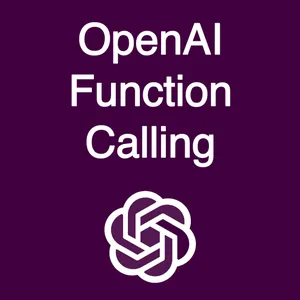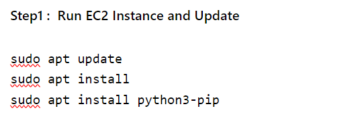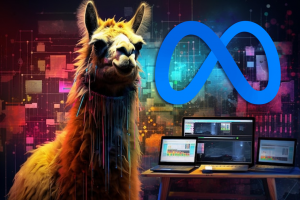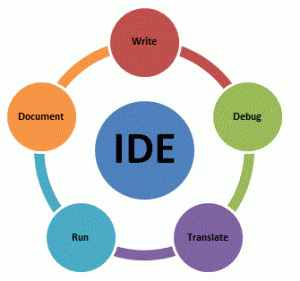Artificial Intelligence (AI) is one of the top-performing and opportunistic fields in technology. Regardless of your current skills, landing a job in AI is not easily achievable, especially when recruiters are on a constant lookout for skilled candidates. There is a wide and easy possibility to upskill and switch careers. Therefore, the journey to becoming a top AI-skilled candidate requires passion and hard work. The article covers the topmost branches that enable building your AI skills to make you a potential candidate for tier 1 AI companies.
Table of contents
What are AI Skills?
AI skills encompass a range of abilities and expertise needed to design, develop, and implement artificial intelligence solutions. These skills include proficiency in programming languages like Python, machine learning algorithms, neural networks, natural language processing, data preprocessing, data visualization, reinforcement learning, data analysis, problem-solving, and ethical considerations. AI skills enable professionals to create intelligent systems that can learn, adapt, and perform tasks like human intelligence, advancing technology in various industries.
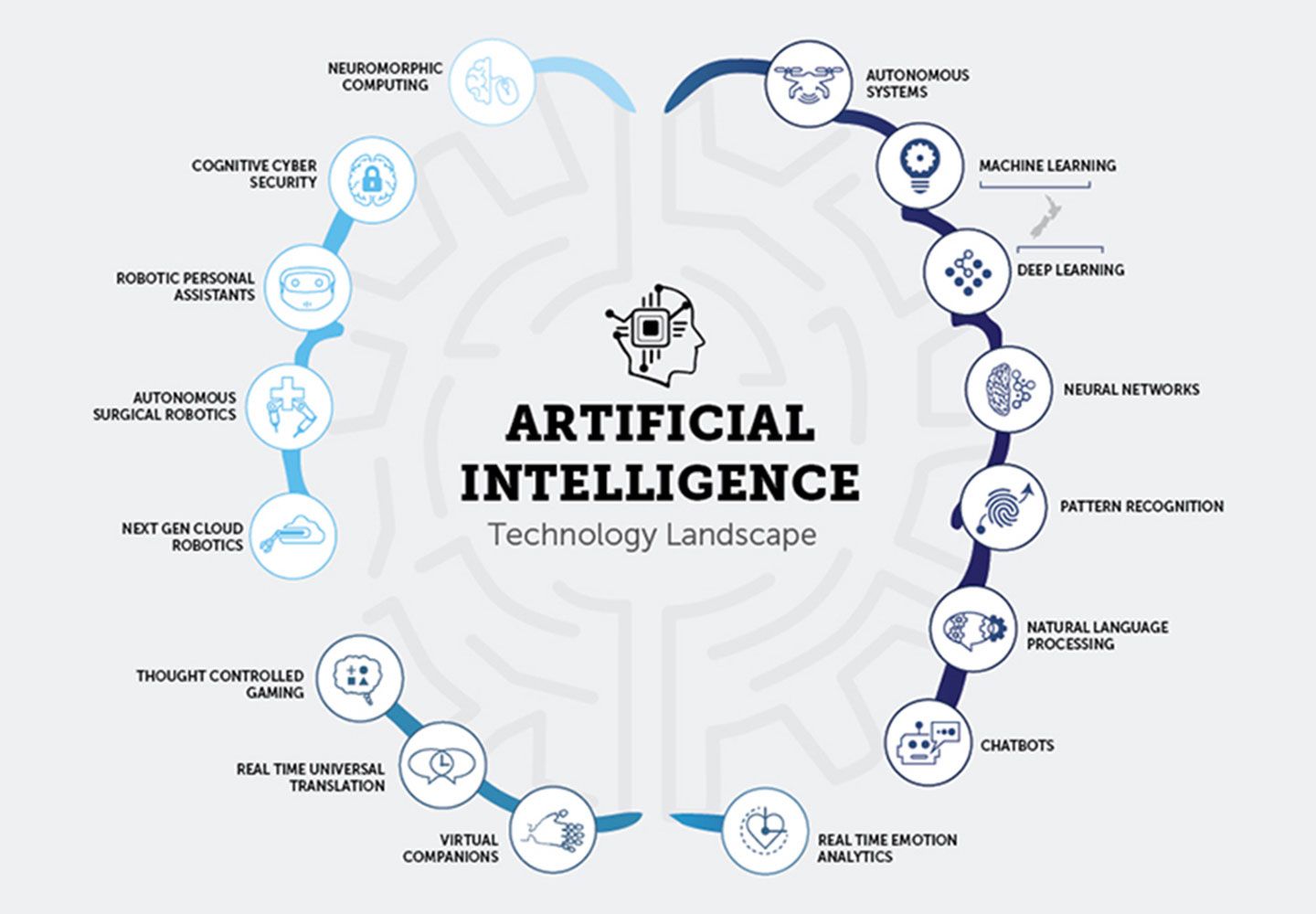
Top 10 AI Skills
Here is the list of top 10 AI skills and their subsections:
- Understanding the AI Landscape
- Proficiency in Programming Languages
- Machine Learning Mastery
- Data Preprocessing and Analysis
- Deep Learning and Neural Networks
- Natural Language Processing (NLP) Skills
- Computer Vision Proficiency
- AI Ethics and Bias Awareness
- Cloud and AI Deployment
- Continuous Learning and Adaptation
Understanding the AI Landscape
Artificial Intelligence refers to a multidisciplinary platform with diverse branches, each with different functions mimicking human knowledge and behavior into machines. AI applications are found across industries like automobile, aerospace engineering, biotechnology, bioinformatics, healthcare, and so on.
Begin grasping the concepts from basic to advanced levels to tailor your AI skills in the specialized field of AI. Some of the major AI branches are:
- Machine Learning: Serving as the base of Artificial Intelligence, it works on algorithms to enable learning from data and enhance features with time.
- Natural Language Processing (NLP): The branch of Artificial Intelligence that enables machines to mimic and interpret human language.
- Robotics: Linking Artificial Intelligence with engineering to generate models or machines that can function autonomously.
- Computer Vision: Artificial Intelligence that aids in recognizing and understanding visual information.
Proficiency in Programming Languages
In AI, several programming languages are specific for generating algorithms and designing models. The ability of programming languages to empower machines to visualize, assimilate, and reflect brings intelligent systems to life.
There are various programming languages used in AI specifically for different tasks, such as:
Python
Python has become the heart and soul of modern artificial intelligence development due to its simplicity, readability, and versatility. A rich ecosystem of AI libraries and frameworks available in Python, like Keras, PyTorch, TensorFlow, and ScriptLearn, rule in developing complex models. These libraries and frameworks dominate neural networks, data analysis, and machine learning.
Using Python, we can conveniently perform several tasks in a matter of time, including web scraping, scientific computing, script, creating financial models, web development, data visualization and simulation.
Explore our free course and learn python for data science and AI.
R Language
R is another essential computer language popularly used in the AI arena. Analysts and researchers use it widely in data science projects. Several industries, like banking, finance, and healthcare, use powerful R language to visualize data and in decision-making via statistical analysis.
Also Read: A Complete Tutorial to learn Data Science in R from Scratch
Julia
In the era of scientific computing and artificial intelligence, Julia became a rising star because it fills the gap between performance and productivity. It is widely used in simulation, data analysis, and machine learning by several AI developers, researchers and scientists. Furthermore, the language is user-friendly and speedy, making it a contender for several AI projects.
Checkout: A Comprehensive Tutorial to Learn Data Science with Julia from Scratch
Machine Learning Mastery
Machine Learning (ML) is a sub-branch of Artificial Intelligence that makes computer systems learn data and enhance performance with time. It involves three different types of fundamental concepts of learning, including
Supervised Learning
Models created based on learning from labeled data. It is purposely used in regression and classification of data. For instance, the model predicts whether the call is fraudulent based on the prior information stored.
Unsupervised Learning
AI models work on predefined data, which incorporates finding correlations or pattern recognition. For instance, a map without any classification or categorization.
Checkout: Supervised Learning vs. Unsupervised Learning – A Quick Guide for Beginners
Reinforced Learning
An ML paradigm where the AI model learns and adapts based on environmental alterations. Similar to others, reinforeced learning aids in AI scale operations. For instance, automated cars observe traffic and optimize effective actions accordingly. Machine Learning involves several crucial algorithms for different functionalities. The important ones among them are discussed as follows:
- Decision trees are significantly used in regression and data classification. For example, data categorization and fraud detection.
- Neural networks influenced by the human brain recognize and process images, patterns and neural languages.
- Support Vector Machines algorithm segregates the inseparable data and is widely used in image recognition, bioinformatics, and market prediction.
Machine learning serves as an important part of Artificial Intelligence in several industries for the following reasons:
- Finance: Empowers AI to observe the data and make intellectual decisions.
- Automobile industries: Facilitates tasks and instantly adapts to the alterations or modifications in the surroundings.
- Entertainment/Marketing: Aid in interpreting visual information, including picture classification, facial identification and object detection.
- Healthcare: Widely used in patient data analysis, offering informed resolution for customized treatments.
Data Preprocessing and Analysis
Clean and organized data is the bedrock of a perfect AI project, which brings quality, accuracy and reliability to the dataset. The AI skills you must have for data processing and analysis may include:
- Data cleaning: The method includes correcting inconsistent data, imputation and finding and organizing the outliers.
- Data transformation: The technique involves the engineering of data, encoding of variables, and so on that modifies the model based on requirements.
- Data normalization: It involves scaling or normalizing the dataset into a consistent range without compromising the accuracy. The common example is z-score normalization.
Popular data visualization tools for pattern recognition and data exploration are as follows:
- Matplotlib: A flexible library generating interactive, animated or static visualization in Python (programming language).
- Seaborn: It offers optimized utilities to make statistical graphics more appealing.
Deep Learning and Neural Networks
Deep learning is a branch of machine learning growing prominently in Artificial Intelligence. It aids in solving complex problems in different realms. It is best for image analysis in medical diagnostics, enhancing computer vision, detecting fraud, enhancing gaming experiences and so on.
Furthermore, neural network architecture is like a human brain, which takes in input, analyzes and processes the information and reflects systematically. Deep learning involves three layers of neural network, i.e.,
- Input layer, which takes in the information to process.
- Hidden layer that isolates the complex traits of input data.
- Output layer that classifies the data learned from the hidden layer.
Famous deep learning frameworks include:
- PyTorch: Offers dynamic computational graphs that ease debugging and experimentation. It was developed by Facebook AI Lab.
- TensorFlow: It provides adjustable architecture appropriate for several functions and platforms. Google developed to construct and understand deep learning models.
Natural Language Processing (NLP) Skills
Natural Language Processing (NLP) is a crucial AI engineer skill that empowers machines to recognize, analyze and communicate with human language. The AI skill is important in diverse fields like text and sentiment analysis and language creation. It is the source of interaction or communication between machines and humans.
An individual must know NLP skills like
- Tokenization: It is important to segregate text into smaller parts to proceed with text analysis.
- Part of Speech Tagging: AI classifies sentences with nouns, verbs, adjectives, etc. It gives us valuable insights into the word roles and the grammar of the sentences.
- Named Entity Recognition: It serves the purpose of aiding in the recognition of the names of organizations, individual dates, places and so on in the text.
There are NLP libraries for effective task performance, such as
- Natural Language Toolkit: It is a Python language-specific popular library for NLP tasks. It offers tools for Part of Speech Tagging, Name Entity Recognition, tokenization, etc.
- spaCy: Fast-paced library offering pre-trained models for distinct NLP functions.
Checkout: Top 13 NLP Projects You Must Know in 2023
Computer Vision Proficiency
It is another skill required for an AI engineer. Computer vision is a component of Artificial Intelligence that aids in elucidating and understanding visual statistics from images and videos. For instance, object recognition and image modifications.
Some important skills are required for artificial intelligence for computer vision, such as
- Object detection: Computer vision-based AI skill is used to detect and confine the objects within images and videos in real-time. The skill is widely used in several industries like surveillance, robotics and automobiles.
- Image segmentation: The image is categorized into distinct sections parallel to different regions or objects. The technique is widely used in medical diagnostics, where professionals detect and observe different tissues and diseases in medical imaging.
- Facial recognition: One of the important AI engineer skills is to recognize and verify individuals based on facial characteristics. It is broadly used in accessing control, security and personalized user experiences.
Furthermore, two major frameworks used for computer vision are as follows:
- TensorFlow and PyTorch: These are deep learning frameworks that proficiently provide a library of computer vision modules for image segmentation and object identification.
- OpenCV: Popularly called an open-source computer vision library with various computer vision functions for trait isolation, digital image manipulation, object tracking and so on.
AI Ethics and Bias Awareness
AI ethics is another AI developer skill that came into the limelight due to the increasing demand for its development and deployment.
It is crucial to understand the significance of ethical considerations in AI development. It encompasses bias and fairness. The importance of these is as follows:
- Bias in AI algorithm: AI algorithms may produce results from learned information stored in the dataset. This may bring unfair outcomes leading to bias or discrimination in case of the presence of biased datasets. For instance, information on historical inequalities.
- Fairness: AI systems must be considerate to offer fairness regardless of the prior presence or absence of biases in the system, dataset or society. The unfair outcome brings inequality and enhances prior biases in society.
Therefore, it is important to generate a better future through responsible AI that may include
- Building diverse AI teams with broad perspectives. Distinct viewpoints can acknowledge and resolve biases that go unnoticed by homogenous teams.
- It is crucial to implement adjustments while training AI models. Fairness-aware algorithms, data augmentation and re-sampling algorithms may aid in eliminating the bias.
- Following ethical guidelines must be a major code to conduct skills required by AI engineers. It gives importance to fairness, equality and social well-being.
Cloud and AI Deployment
AI development and cloud computing are crucial AI developer skills for landing a job. Cloud computing has changed the AI development landscape by providing cost-effective resolutions, extensive resources and advanced-featured tools. Platforms such as Amazon Web Service (AWS), Google Cloud, and Azure by Microsoft aid in speeding the service customized to AI development and deployment.
Let us learn the significance of AI models that impact real life.
- Decision support: Deployed in real-world situations, AI models aid in wise decision-making in several industries.
- Validating and learning: Actual world deployment aids in understanding AI model behavior in actual circumstances so that it can be consistently refined.
- Innovation and adaptability: One of the important skills AI engineers require to drive innovation using AI deployment in the real world. It offers new abilities to adapt to the situation with the change.
Continuous Learning and Adaptation
Continuous learning and adaptation are crucial skills for AI engineers. AI technology is dynamic and continuously developing. It is important to stay updated with the advancements in artificial intelligence for our own benefit to remain efficient in this competitive field. The ever-evolving nature of AI technology brings challenges, opportunities, and applications to individuals and requires engagement in ongoing learning.
Here are the reasons why staying updated is important for individuals.
- Competitive verge: Being updated in AI skills makes you a potential candidate in the job market.
- Address problems and offer optimal solutions: Advancement brings challenges. Keeping up with advancements in AI builds skills to choose appropriate techniques and tools to complete the task effectively and approach the solution.
You can stay updated and build AI skills with the help of online classes and workshops, blogs, publications, webinars and conferences. They cover a variety of courses from basic to advanced level and nurture deep learning in every Artificial Intelligence domain. Furthermore, you have valuable insights from experts and peers where you can share your ideas and bring innovation. Continuous learning and adapting to new technology updates will aid in offering new opportunities for landing a job.
Must-Have Skills in the Era of Artificial Intelligence
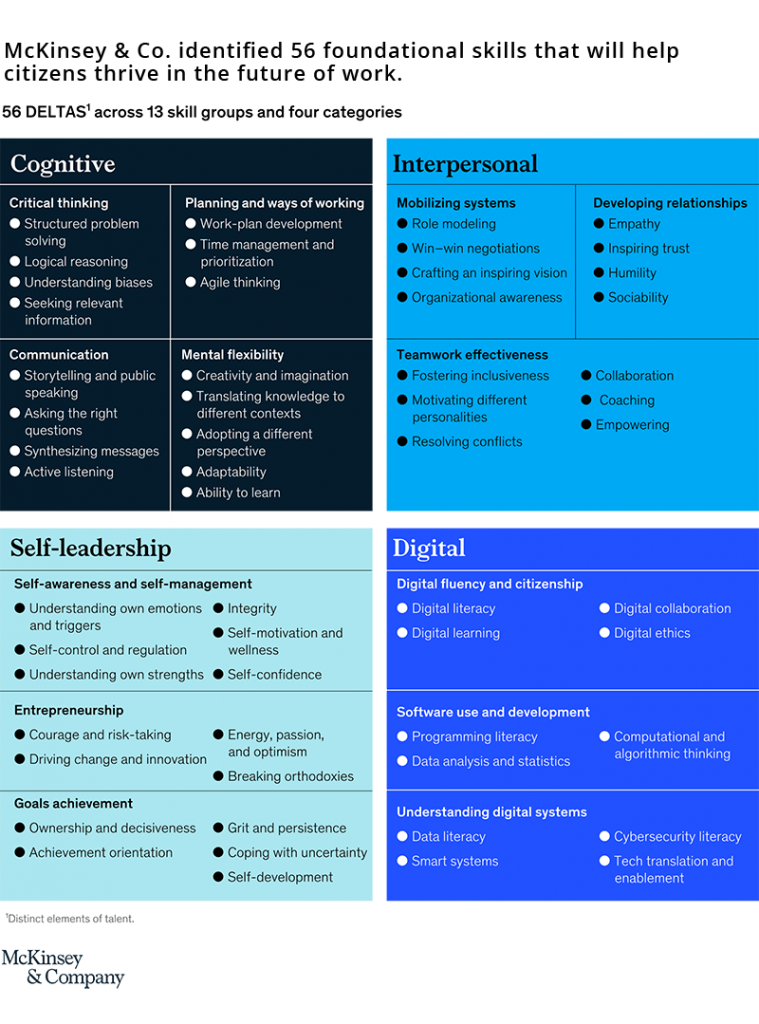
Best Non-Tech AI Skills

Conclusion
The variety of AI skills exhibited above find application in many industrial sectors and academics. Looking for a job in this field offers a broad spectrum of opportunities. However, with the lack of appropriate skills, the option becomes challenging. Offering a simple and effective solution for aspiring candidates in the field, Analytics Vidya provides certified AI and ML BlackBelt Plus programs at affordable rates— An important learning step to enhance your skills and boost your confidence in different artificial intelligence sectors.
Frequently Asked Questions
A. AI skills encompass programming, machine learning, data preprocessing, neural networks, natural language processing, and problem-solving, allowing professionals to create intelligent systems and technologies.
A. AI developers require expertise in programming languages like Python, machine learning frameworks, data manipulation, statistical analysis, and problem-solving to create effective AI applications.
A. Employers seek AI skills such as machine learning, deep learning, natural language processing, data analytics, and problem-solving to build AI-powered solutions that enhance efficiency and innovation in their organizations.
Related
- SEO Powered Content & PR Distribution. Get Amplified Today.
- PlatoData.Network Vertical Generative Ai. Empower Yourself. Access Here.
- PlatoAiStream. Web3 Intelligence. Knowledge Amplified. Access Here.
- PlatoESG. Automotive / EVs, Carbon, CleanTech, Energy, Environment, Solar, Waste Management. Access Here.
- PlatoHealth. Biotech and Clinical Trials Intelligence. Access Here.
- ChartPrime. Elevate your Trading Game with ChartPrime. Access Here.
- BlockOffsets. Modernizing Environmental Offset Ownership. Access Here.
- Source: https://www.analyticsvidhya.com/blog/2023/08/ai-skills/
- :has
- :is
- :not
- :where
- $UP
- 1
- 10
- 12
- 13
- 15%
- 17
- 2000
- 2023
- a
- abilities
- ability
- above
- academics
- accessing
- accordingly
- accuracy
- acknowledge
- across
- actions
- actual
- adapt
- adaptability
- adaptation
- adapts
- adjustable
- adjustments
- advanced
- advancements
- advancing
- Aerospace
- aerospace engineering
- affordable
- AI
- AI models
- AI-powered
- Aid
- aids
- algorithm
- algorithms
- Allowing
- alterations
- Amazon
- among
- an
- analysis
- Analysts
- analytics
- analyze
- analyzes
- and
- Another
- any
- appealing
- Application
- applications
- approach
- appropriate
- architecture
- ARE
- Arena
- article
- artificial
- artificial intelligence
- AS
- asked
- aspiring
- At
- Automated
- automobile
- automobiles
- autonomously
- available
- AWS
- Azure
- Banking
- base
- based
- basic
- BE
- became
- because
- become
- becomes
- becoming
- behavior
- being
- benefit
- BEST
- Better
- between
- bias
- biased
- biases
- biotechnology
- blogs
- boost
- Brain
- Branch
- branches
- bring
- Brings
- broad
- broadly
- build
- Building
- builds
- by
- call
- called
- came
- CAN
- candidate
- candidates
- careers
- cars
- case
- Certified
- challenges
- challenging
- change
- changed
- characteristics
- Choose
- circumstances
- classes
- classification
- Cleaning
- Cloud
- cloud computing
- code
- Common
- communicate
- Communication
- competitive
- complete
- complex
- component
- comprehensive
- compromising
- computer
- Computer Vision
- computing
- concepts
- Conduct
- conferences
- confidence
- considerate
- considerations
- consistent
- consistently
- constant
- construct
- continuous
- continuously
- control
- correlations
- cost-effective
- course
- courses
- cover
- covers
- create
- created
- Creating
- creation
- crucial
- Current
- customized
- data
- data analysis
- Data Analytics
- data processing
- data science
- data visualization
- datasets
- Dates
- Decision Making
- decisions
- deep
- deep learning
- Demand
- deployment
- Design
- designing
- detect
- Detection
- develop
- developed
- Developer
- developers
- developing
- Development
- different
- digital
- Discrimination
- discussed
- diseases
- distinct
- diverse
- domain
- dominate
- drive
- due
- dynamic
- e
- each
- ease
- easily
- easy
- ecosystem
- Effective
- effectively
- efficiency
- efficient
- eliminating
- employers
- empower
- empowers
- enable
- enables
- encompass
- encompasses
- engagement
- engineer
- Engineering
- Engineers
- enhance
- Enhances
- enhancing
- entity
- environmental
- equality
- Era
- especially
- essential
- etc
- Ether (ETH)
- ethical
- ethics
- Every
- example
- Experiences
- expertise
- experts
- exploration
- extensive
- facial
- facilitates
- fairness
- fast-paced
- Features
- field
- Fields
- finance
- financial
- Find
- finding
- flexible
- following
- follows
- For
- found
- frameworks
- fraud
- fraud detection
- fraudulent
- Free
- from
- function
- functionalities
- functions
- fundamental
- Furthermore
- future
- gaming
- gap
- generate
- generating
- gives
- Go
- Google Cloud
- Grammar
- graphics
- graphs
- Growing
- guide
- guidelines
- Hard
- hard work
- Have
- healthcare
- Heart
- help
- Hidden
- historical
- However
- HTTPS
- human
- human intelligence
- Humans
- i
- ideas
- Identification
- image
- image analysis
- Image Recognition
- image segmentation
- images
- Imaging
- Impact
- implement
- importance
- important
- in
- include
- includes
- Including
- incorporates
- increasing
- individual
- individuals
- industrial
- industries
- inequalities
- Inequality
- influenced
- information
- informed
- Innovation
- input
- insights
- instance
- instantly
- intellectual
- Intelligence
- Intelligent
- interaction
- interactive
- into
- involves
- Isolates
- isolation
- IT
- ITS
- Job
- journey
- keeping
- keras
- Know
- knowledge
- lab
- Lack
- landing
- landscape
- language
- Languages
- layer
- layers
- leading
- LEARN
- learned
- learning
- Level
- levels
- libraries
- Library
- Life
- like
- limelight
- linking
- List
- looking
- machine
- machine learning
- Machines
- major
- make
- MAKES
- Making
- Manipulation
- many
- map
- Market
- Matter
- max-width
- May..
- McKinsey
- medical
- medical imaging
- method
- Microsoft
- ML
- model
- models
- Modern
- Modifications
- Modules
- more
- multidisciplinary
- must
- name
- names
- Natural
- Natural Language
- Natural Language Processing
- Nature
- needed
- network
- networks
- Neural
- neural network
- neural networks
- New
- nlp
- nouns
- nurture
- object
- Object Detection
- objects
- observe
- of
- offer
- offering
- Offers
- on
- ONE
- ones
- ongoing
- online
- open source
- Operations
- opportunities
- optimal
- Optimize
- optimized
- Option
- or
- organizations
- Organized
- organizing
- Others
- our
- Outcome
- outcomes
- own
- paradigm
- Parallel
- part
- parts
- passion
- patient
- patient data
- Pattern
- patterns
- peers
- perfect
- perform
- performance
- Personalized
- perspectives
- picture
- Places
- platform
- Platforms
- plato
- Plato Data Intelligence
- PlatoData
- Popular
- possibility
- potential
- powerful
- prediction
- Predicts
- presence
- Prior
- problem-solving
- problems
- proceed
- process
- processes
- processing
- produce
- productivity
- professionals
- Programming
- programming languages
- Programs
- project
- projects
- provide
- provides
- providing
- publications
- purpose
- Python
- pytorch
- quality
- Questions
- Quick
- R
- range
- Read
- real
- real life
- real world
- real-time
- realms
- reasons
- recognition
- recognize
- recognizing
- refers
- refined
- reflect
- reflects
- Regardless
- regions
- regression
- reinforcement learning
- reliability
- remain
- require
- required
- Requirements
- requires
- researchers
- Resolution
- Resources
- responsible
- Results
- Rich
- rising
- robotics
- roles
- Rule
- Scale
- scale operations
- scaling
- Science
- scientific
- scientists
- scraping
- sections
- Sectors
- security
- Seek
- segmentation
- sentiment
- serves
- service
- several
- Share
- significance
- significantly
- similar
- Simple
- simplicity
- simulation
- situation
- situations
- skill
- skilled
- skills
- smaller
- So
- Social
- Society
- solution
- Solutions
- Solving
- some
- Soul
- Source
- specialized
- specific
- specifically
- Spectrum
- speech
- speedy
- Star
- statistical
- statistics
- stay
- Step
- stored
- such
- support
- surveillance
- Switch
- system
- Systems
- takes
- Task
- tasks
- teams
- techniques
- Technologies
- Technology
- tensorflow
- that
- The
- the information
- The Source
- their
- Them
- There.
- therefore
- These
- they
- this
- three
- Through
- time
- tissues
- to
- Tokenization
- toolkit
- tools
- top
- Top 10
- topmost
- Tracking
- traffic
- Training
- Transformation
- treatments
- Trees
- tutorial
- two
- types
- understand
- understanding
- unfair
- unsupervised learning
- updated
- Updates
- us
- use
- used
- User
- user-friendly
- using
- utilities
- Valuable
- variables
- variety
- various
- verge
- verify
- versatility
- via
- Videos
- viewpoints
- vision
- visualization
- visualize
- vs
- was
- we
- web
- Web development
- web scraping
- Webinars
- What
- when
- whether
- which
- while
- why
- wide
- widely
- will
- WISE
- with
- within
- without
- Word
- Work
- works
- Workshops
- world
- you
- Your
- zephyrnet

